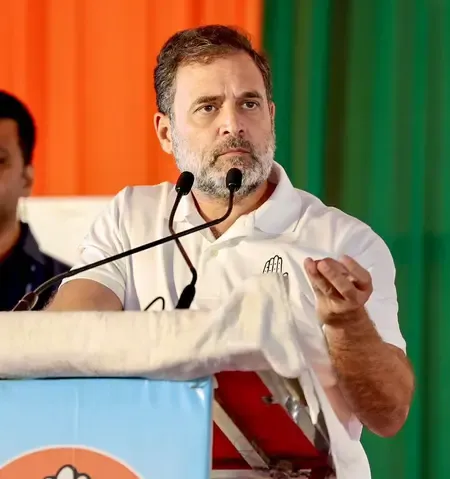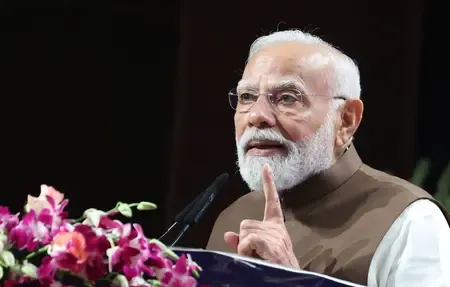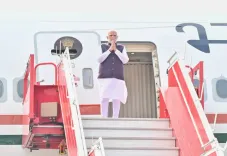Why Did Indian Players Omit Handshake with Pakistan After Asia Cup Clash?

Synopsis
Key Takeaways
- India demonstrated superior skills in all aspects of the game.
- Tension was evident even before the match started.
- Spin bowling played a crucial role in India's victory.
- Sportsmanship was notably absent post-match.
- Solidarity was expressed for the victims of a recent terror attack.
Dubai, Sep 15 (NationPress) The intense Group A match between India and Pakistan in the Asia Cup concluded in a surprisingly chilly atmosphere at the Dubai International Stadium on Sunday. After the final whistle, Indian batsmen Suryakumar Yadav and Shivam Dube exited the field without participating in the traditional post-match handshake with their Pakistani counterparts.
The Pakistani team similarly refrained from extending this gesture, resulting in a lack of the usual sportsmanship that typically accompanies such encounters. Following the handshake omission, Pakistan captain Salman Agha also bypassed the post-match presentation.
Tension was evident even before the match commenced, as captains Suryakumar and Salman Agha skipped the handshake at the toss. What began as a symbolic gesture set the stage for a frosty conclusion, where the absence of camaraderie spoke volumes beyond the game itself.
"We stand with the victims of the families of the Pahalgam terror attack, and we express our solidarity, dedicating today's victory to the armed forces," stated India captain Suryakumar Yadav following the match.
Earlier, Suryakumar celebrated his 35th birthday in style, scoring an unbeaten 47 off 37 balls to steer India to a convincing seven-wicket victory over Pakistan.
India’s spin-heavy approach proved crucial for the second consecutive game. Left-arm wrist-spinner Kuldeep Yadav spearheaded the attack, achieving figures of 3-18, while Axar Patel contributed with 2-18. Varun Chakaravarthy recorded figures of 1-24, as the trio displayed remarkable control on a sluggish Dubai pitch, limiting Pakistan to 127/9.
The slow Dubai surface further benefitted India’s spinners, whose precision and variations kept Pakistan struggling for momentum throughout their innings. While Sahibzada Farham was the top scorer with 40, a late surge from Shaheen Shah Afridi, who scored an unbeaten 33 off 16 balls, added some respectability to Pakistan’s meager total.
Chasing a target of 128 was manageable, and India comfortably secured victory with 25 balls remaining. This game highlighted the superiority of the reigning T20 World Cup champions over Pakistan in every aspect of the contest.









